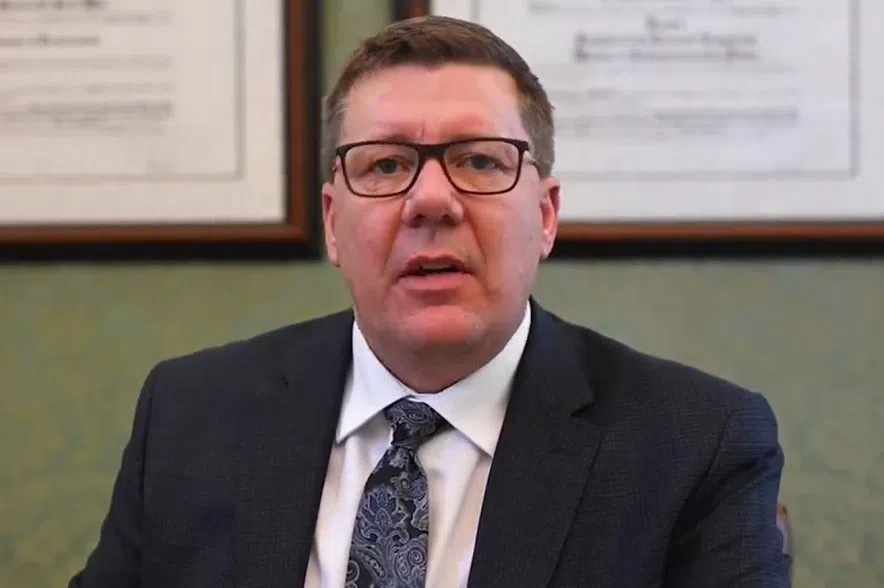Premier Scott Moe took an unprecedented step Wednesday to try to restart contract negotiations with the Saskatchewan Teachers’ Federation.
In a video posted on social media, Moe said the provincial government previously committed to include in the 2024-25 budget increased funding for class size and classroom complexity — a sticking point in negotiations.
“The teachers’ union has questioned this commitment and has used this as their reason to not return to the bargaining table and to continue with job action,” Moe said. “So today, I am taking the very unusual step of announcing part of the education budget prior to budget day.
“This should clearly demonstrate our government’s commitment to address teachers’ concerns around classroom supports.”
Moe said the budget – to be delivered March 20 – will include more than $356 million that has been specifically allocated to classroom supports. The premier said that’s an increase of more than $45 million from last year.
The premier added the budget would include the largest increase in school operating funding in Saskatchewan’s history – $180M – hiking the education portion of the budget to $2.2 billion.
“That is a record budget to address classroom size and complexity,” Moe said, “and we will continue to work very closely with our school divisions to ensure that this record investment is used where it is needed the most — right in our classrooms, supporting our students.”
Two weeks from today, the new provincial budget will deliver the largest ever increase in school operating funding and a record new commitment to address classroom size and complexity.
Today, I am taking the unusual step of announcing part of the education budget prior to budget… pic.twitter.com/gSPTgZRz9K
— Scott Moe (@PremierScottMoe) March 6, 2024
The government previously announced programs it believes address part of the problem, including funding to a pilot project to deal with disruptive behaviour in classrooms. That was on top of $40 million in additional funding that was given to school divisions in June.
Moe noted the government already has moved on a number of the teachers’ requests during negotiations, including workplace safety enhancements and the ability to manage their own dental plan, as well as operating under the same salary formula as MLAs.
He admitted the government isn’t going to meet the teachers’ request of a 23 per cent increase in salaries over the length of the new deal, but he said the government had been making “reasonable, affordable concessions” to get the union back to the table.
“In light of these significant commitments, I am asking the STF to pause their job action so that teachers and students can return to their classrooms, and the teachers’ union can return to the bargaining table,” he said.
In a social media post earlier in the day, the STF pointed out the benefits of including class size and complexity in the contract – something that has been done in other provinces.
“Having class size and complexity in an agreement ensures accountability from government for adequate funding (no more cuts!),” the union’s post read.
“Divisions have assurance and can implement funding as they need, and families and students have assurances about their learning environments.”
Having class size and complexity in an agreement ensures accountability from government for adequate funding (no more cuts!). Divisions have assurance and can implement funding as they need, and families and students have assurances about their learning environments. pic.twitter.com/6T878yKeyV
— Saskatchewan Teachers' Federation (@SaskTeachersFed) March 6, 2024
The contract between the government and the STF expired in August and the union declared an impasse in negotiations in October.
The teachers voted overwhelmingly in favour of sanctions, but didn’t take any job action until the new year. In the weeks since then, teachers have staged rotating strikes, withdrawn lunch-hour supervision and withheld supervision of extracurricular activities.
There was a brief respite in early February when the teachers cancelled planned sanctions after getting invited back to the bargaining table, but talks collapsed and the job action resumed.











